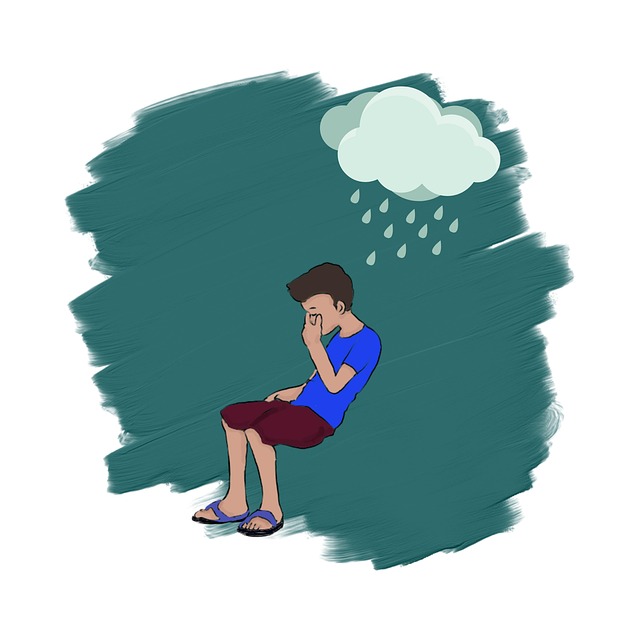Post-Traumatic Stress Disorder (PTSD) profoundly affects emotional and psychological well-being, impacting daily life and relationships. Local therapists specializing in PTSD offer mental health counseling through safe, non-judgmental spaces using evidence-based therapies like CBT and EMDR. They serve as essential community pillars, providing personalized support tailored to cultural dynamics. Identifying qualified therapists with relevant credentials and training is crucial for effective care. Local therapy offers accessibility, culturally sensitive care, and personalized coping strategies, enhancing long-term recovery. Starting with research and trusting instincts during initial consultations is vital. Initial sessions focus on building trust, understanding symptoms, and developing treatment plans. Continuous support through community groups and online resources complements local therapy for holistic healing.
Local PTSD therapists play a vital role in navigating the complex landscape of mental health counseling, offering specialized support for individuals grappling with post-traumatic stress disorder (PTSD). This article delves into the significant impact of local therapists, exploring their role in providing effective treatment and fostering continuous healing. We guide you through understanding PTSD, identifying qualified professionals, and navigating the search for tailored mental health counseling to embark on a path towards recovery.
Understanding PTSD and Its Impact on Individuals

Post-Traumatic Stress Disorder (PTSD) is a complex mental health condition that affects individuals who have experienced or witnessed traumatic events. It’s more than just feeling scared or anxious; it’s a profound and lasting impact on one’s emotional and psychological well-being. Symptoms can include flashbacks, nightmares, severe anxiety, avoidance of triggers associated with the trauma, and intense emotions. Understanding PTSD involves recognizing its wide-ranging effects on daily functioning, relationships, and overall quality of life.
Seeking mental health counseling from local therapists who specialize in PTSD is a crucial step towards recovery. These professionals provide a safe, non-judgmental space for individuals to process their traumatic experiences and work through the associated symptoms. Through evidence-based therapies like Cognitive Behavioral Therapy (CBT) or Eye Movement Desensitization and Reprocessing (EMDR), clients can develop coping strategies, regain a sense of control, and learn to manage their symptoms effectively.
The Role of Local Therapists in Mental Health Counseling

Local therapists play a pivotal role in providing accessible and personalized mental health counseling to individuals within their communities. In today’s fast-paced world, where stress and trauma are prevalent, these professionals offer a safe space for people to process and heal from various challenges, including post-traumatic stress disorder (PTSD). By being readily available and understanding the unique cultural and social dynamics of their areas, local therapists facilitate timely interventions and support systems that can significantly impact positive outcomes.
Their expertise lies in tailoring therapeutic approaches to meet the specific needs of each client, ensuring effective treatment for anxiety, depression, and other mental health concerns. Through individual or group therapy sessions, these specialists foster an environment conducive to open communication, encouraging clients to explore their emotions, gain insights, and develop coping mechanisms. The accessibility of local therapists ensures that help is readily available when needed, making a profound difference in the lives of those seeking mental health counseling.
Identifying Qualified PTSD Therapists

When seeking a therapist for Post-Traumatic Stress Disorder (PTSD), it’s crucial to identify qualified professionals who specialize in this area. The first step is to ensure they hold relevant credentials and certifications in mental health counseling, specifically tailored for trauma-focused care. Look for therapists with advanced training in evidence-based treatments like Cognitive Behavioral Therapy (CBT) or Eye Movement Desensitization and Reprocessing (EMDR), which are widely recognized as effective for PTSD.
Reputable associations and licensing boards can be excellent resources to verify a therapist’s qualifications. Check if they are licensed by the appropriate regulatory body in your region, indicating they have met stringent standards for education, training, and experience in mental health counseling. Additionally, seeking recommendations from trusted sources or reading client reviews can offer insights into the therapist’s approach and effectiveness, ensuring you receive the best possible care.
Benefits of Local Therapy for PTSD Treatment

Local therapy for Post-Traumatic Stress Disorder (PTSD) offers numerous benefits that can significantly enhance a person’s recovery journey. One of the key advantages is accessibility; individuals can easily attend sessions without the barriers often associated with long-distance travel, making it more convenient and less intimidating to seek help. This local support system also fosters a sense of comfort and security as clients can establish a routine in familiar surroundings, which is crucial for building trust and confidence during therapy.
Additionally, local PTSD therapists are often well-versed in the community’s unique resources and challenges. They can provide culturally sensitive care tailored to the specific needs of their clients, ensuring more effective treatment. This personalized approach, combined with consistent support, allows individuals to develop coping strategies that resonate with their everyday lives, making mental health counseling more engaging and impactful for long-term recovery.
Navigating the Search for a Suitable Therapist

Navigating the search for a suitable therapist can be a challenging yet crucial step in one’s journey towards healing from PTSD. It’s essential to remember that finding the right fit is key to successful mental health counseling. Start by researching and reaching out to several therapists in your area, many of whom specialize in trauma-focused care. During initial consultations, consider factors like the therapist’s approach, their experience with PTSD specifically, and how comfortable you feel discussing intimate details of your experiences.
Trust your instincts; if a therapist makes you feel judged or uncomfortable, it’s okay to look elsewhere. The therapeutic relationship should be built on mutual respect and understanding. Additionally, check insurance coverage and payment plans to ensure accessibility. This process may take time, but investing in finding the right therapist is invaluable for the support and guidance they can provide throughout your healing journey.
What to Expect During Your First Session

During your first session with a local PTSD therapist, you can expect an open and non-judgmental environment where your comfort is prioritized. The therapist will begin by creating a safe space, ensuring confidentiality, and setting clear boundaries. This initial meeting is crucial for building trust and understanding the nature of your PTSD symptoms. You’ll be encouraged to share your experiences and concerns freely.
The therapist will likely ask about your background, current challenges, and any previous mental health treatments. They may use specific techniques like active listening, empathy, and validation to help you feel heard and understood. This session is also an opportunity for you to ask questions about the therapy process, expected outcomes, and what to do between sessions. Mental health counseling for PTSD involves a collaborative approach, and your therapist will work with you to develop a personalized treatment plan tailored to your unique needs.
Resources and Support for Continuous Healing

For those on their healing journey, continuous support and resources are invaluable. Local PTSD therapists play a pivotal role in providing a safe space for individuals to process trauma and develop coping mechanisms tailored to their unique experiences. Many communities offer additional resources like support groups, where individuals can connect with peers facing similar challenges, fostering a sense of belonging and shared understanding.
Beyond traditional mental health counseling, online platforms and apps have emerged as powerful tools. These digital resources provide accessible and often affordable options for ongoing therapy, enabling individuals to receive much-needed support from the comfort of their homes. By combining local therapist care with these innovative digital solutions, individuals can navigate their healing paths at a pace that feels right for them.
